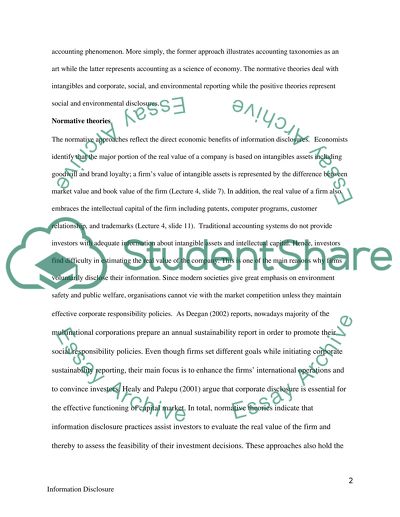Cite this document
(“Why Do Firms Voluntarily Disclosure Information Essay”, n.d.)
Why Do Firms Voluntarily Disclosure Information Essay. Retrieved from https://studentshare.org/finance-accounting/1439824-why-do-firms-voluntarily-disclosure-information
Why Do Firms Voluntarily Disclosure Information Essay. Retrieved from https://studentshare.org/finance-accounting/1439824-why-do-firms-voluntarily-disclosure-information
(Why Do Firms Voluntarily Disclosure Information Essay)
Why Do Firms Voluntarily Disclosure Information Essay. https://studentshare.org/finance-accounting/1439824-why-do-firms-voluntarily-disclosure-information.
Why Do Firms Voluntarily Disclosure Information Essay. https://studentshare.org/finance-accounting/1439824-why-do-firms-voluntarily-disclosure-information.
“Why Do Firms Voluntarily Disclosure Information Essay”, n.d. https://studentshare.org/finance-accounting/1439824-why-do-firms-voluntarily-disclosure-information.


